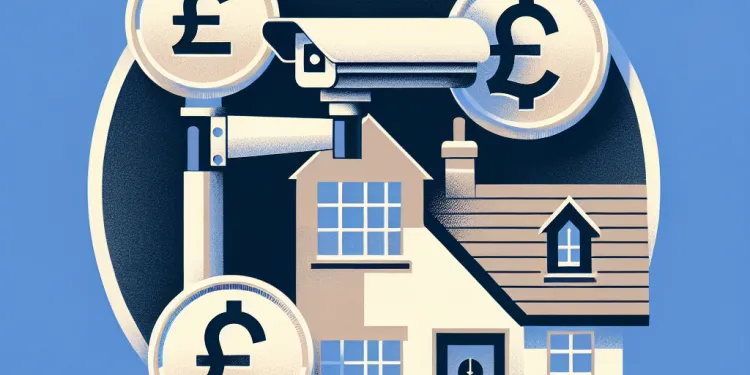
Find Help
More Items From Ergsy search
-
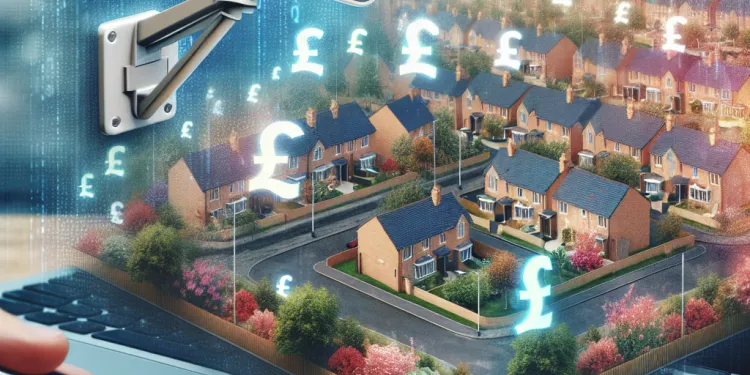
Is it legal for my neighbor to have a security camera facing my property?
Relevance: 100%
-
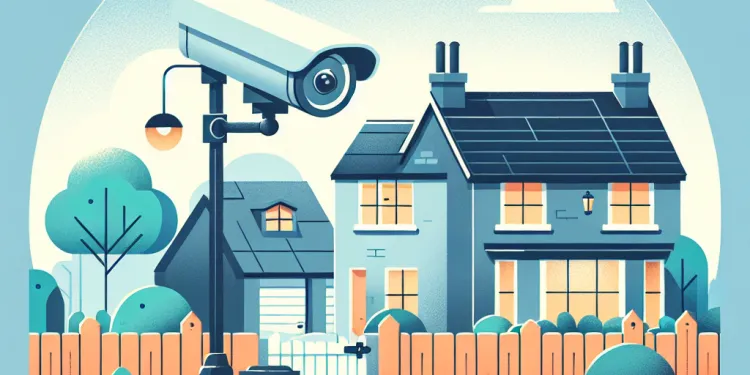
Can my neighbour legally point a security camera at my property?
Relevance: 100%
-
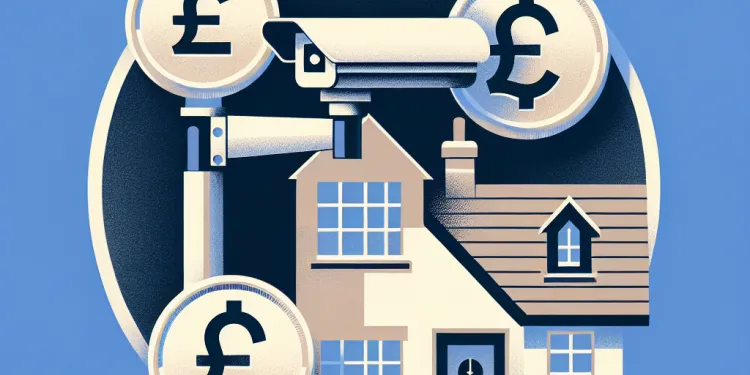
What if my neighbor claims the camera is for security but it points towards my property?
Relevance: 97%
-

How can I stop my neighbour's security camera pointing at my property?
Relevance: 97%
-
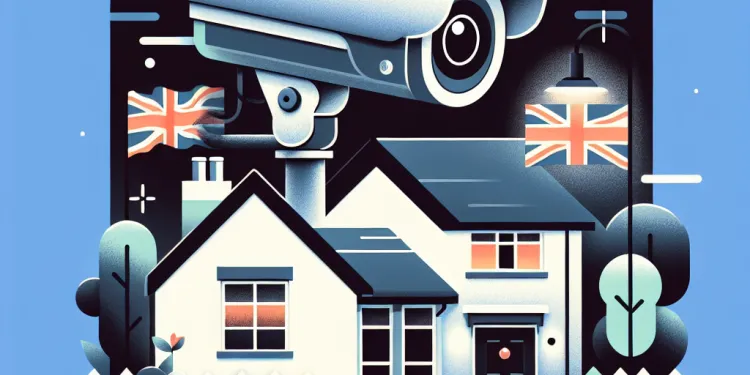
What should I do first if my neighbor's security camera is pointed at my property?
Relevance: 93%
-

Can I ask my neighbour to reposition their security camera?
Relevance: 92%
-
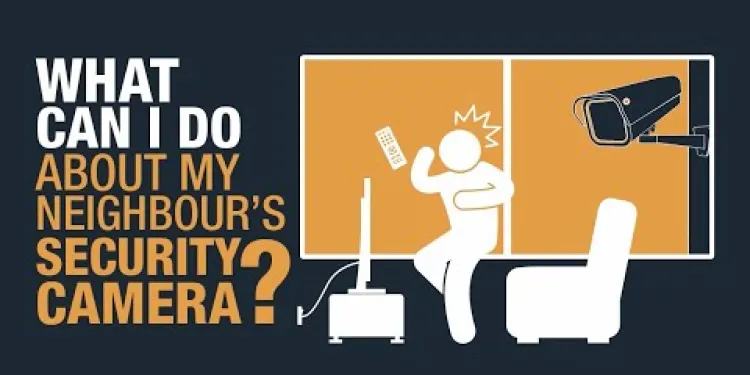
What can I do about my neighbour's security camera?
Relevance: 92%
-
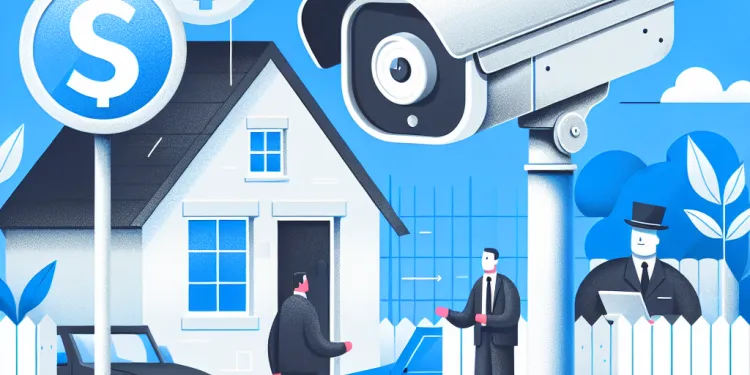
Is it legal for me to block the view of my neighbour's security camera?
Relevance: 91%
-

What can I do about my neighbour's security camera?
Relevance: 91%
-
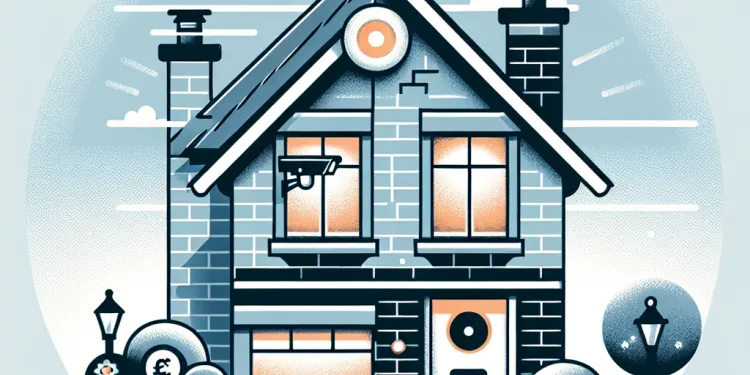
Do neighbours need to inform me if their cameras record my property?
Relevance: 87%
-
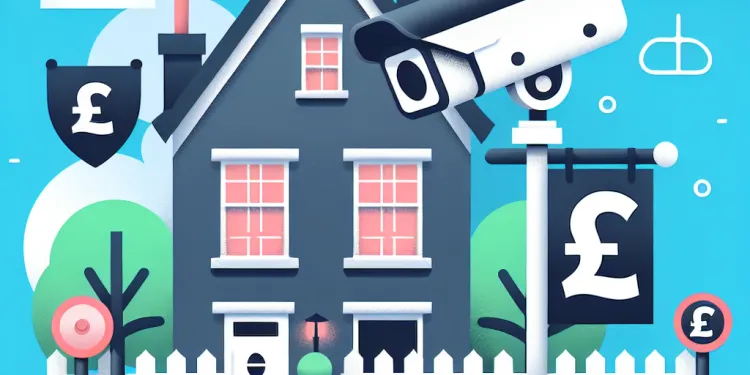
What steps can I take if my neighbour refuses to reposition their security camera?
Relevance: 82%
-

How can I tell if a security camera is pointing at my property?
Relevance: 81%
-
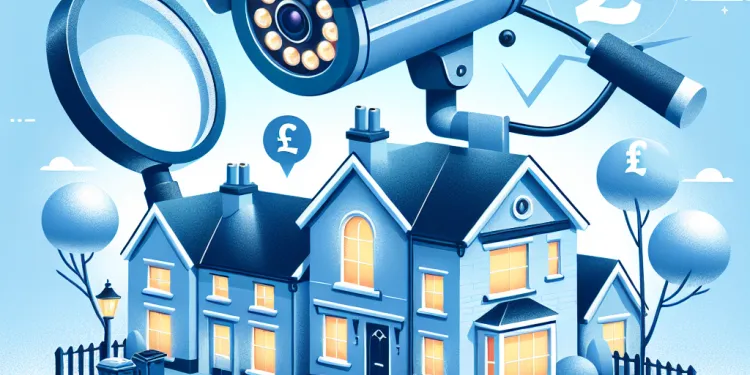
Can my neighbour use footage from their security camera as evidence in disputes?
Relevance: 76%
-

Are there privacy laws that protect me from neighbor's cameras?
Relevance: 72%
-

Can I block the view of my neighbor's camera with physical barriers?
Relevance: 71%
-
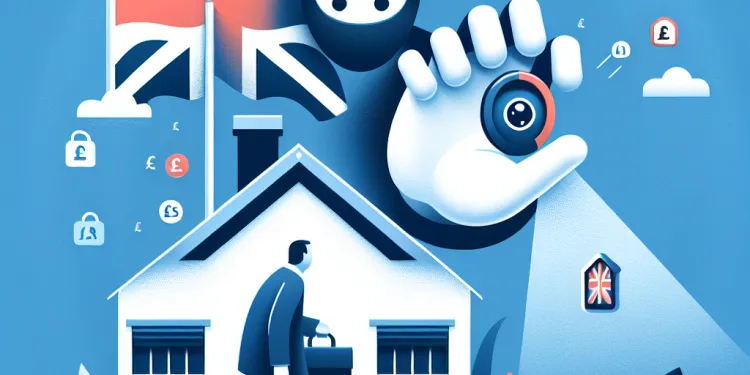
Can I ask for legal help to get my neighbor’s camera moved?
Relevance: 68%
-
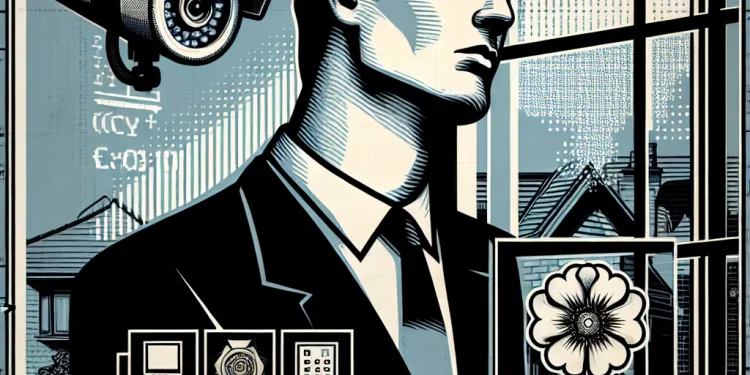
Should I contact the authorities if my neighbor refuses to adjust their camera?
Relevance: 68%
-

How can I disable my neighbour's security camera?
Relevance: 66%
-
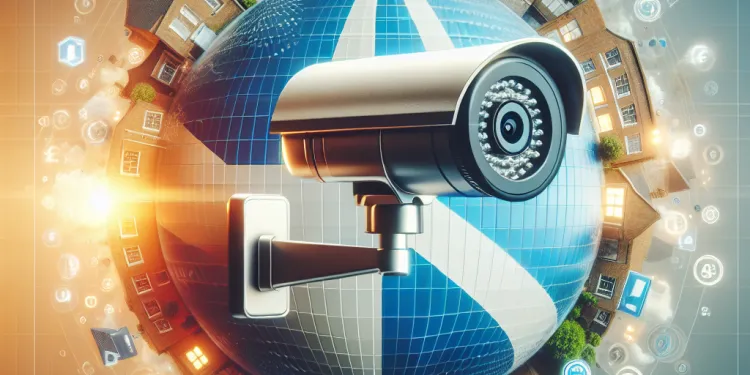
Is redirecting a security camera a solution?
Relevance: 64%
-
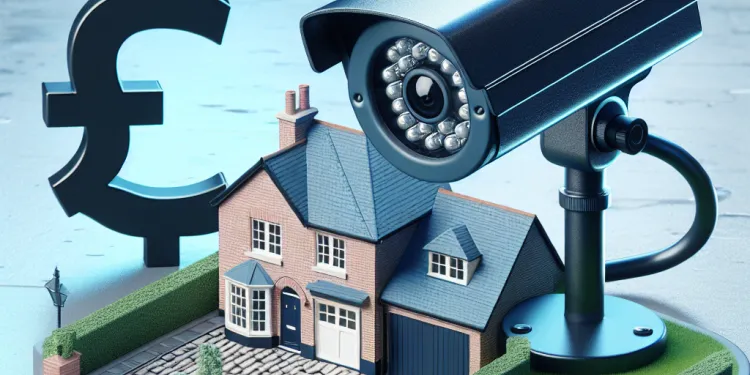
Is my concern valid if the camera is only monitoring my driveway?
Relevance: 60%
-

What happens if a neighbor builds a fence on my property?
Relevance: 56%
-
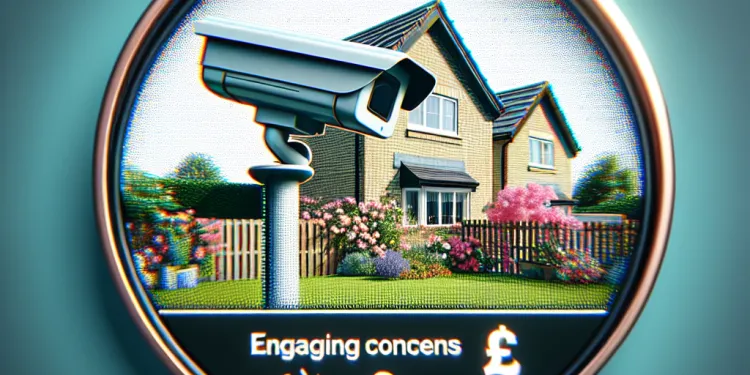
What should I do if I feel my privacy is being invaded by my neighbour's CCTV?
Relevance: 54%
-
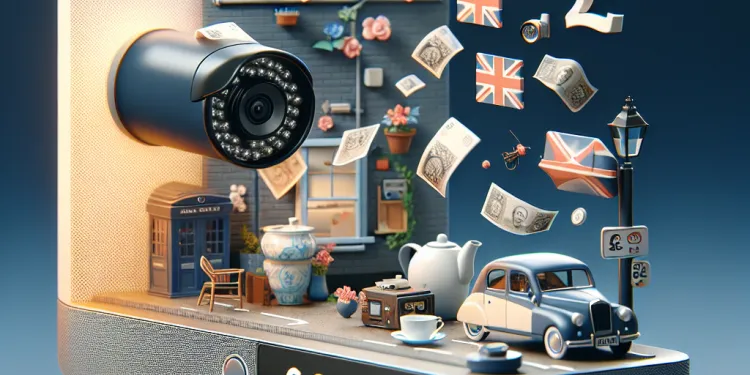
Can I install my own camera to monitor the area in question?
Relevance: 53%
-

How secure is the Ring Doorbell Camera system?
Relevance: 53%
-

Is it advisable to discuss camera placement before it becomes an issue?
Relevance: 47%
-

What laws apply to the use of security cameras in the UK?
Relevance: 45%
-
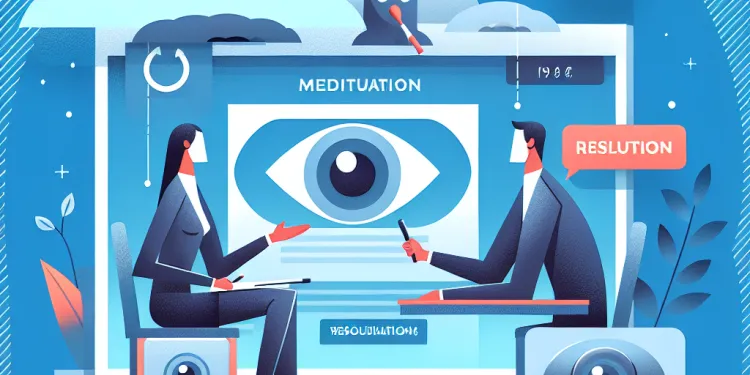
Are there any mediation services for resolving disputes over security cameras?
Relevance: 44%
-

Can the police access my neighbour’s CCTV footage without consent?
Relevance: 42%
-
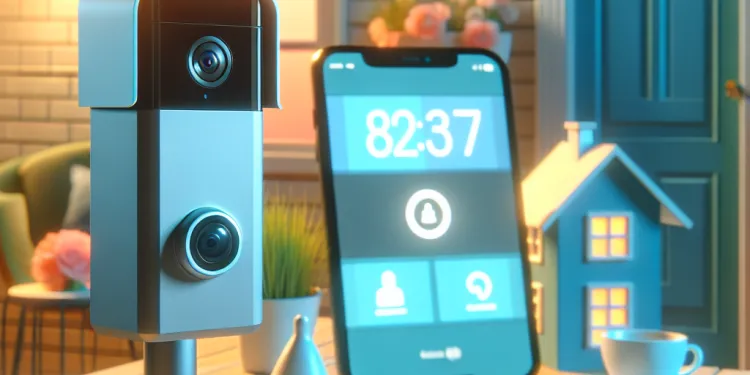
What happens if my Ring Doorbell Camera is stolen?
Relevance: 41%
-
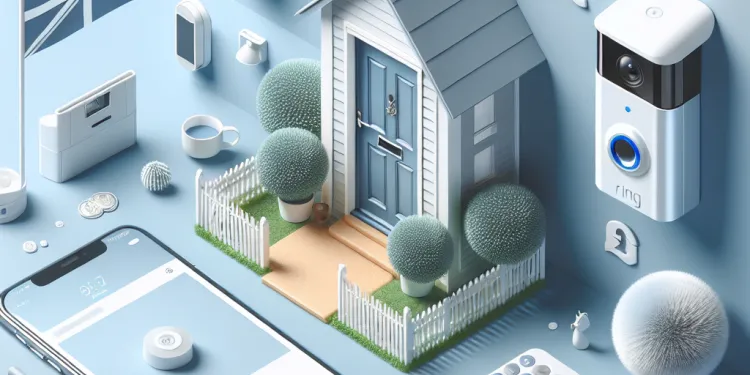
How do Ring Doorbell Cameras work?
Relevance: 40%
-
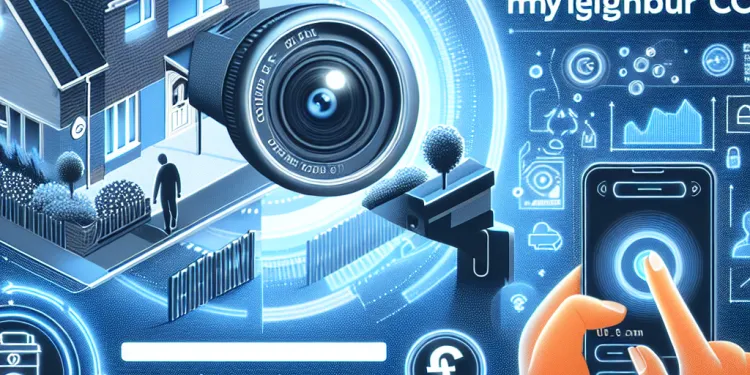
Can I request footage of myself from my neighbour's CCTV?
Relevance: 40%
-

What is my neighbour required to do under GDPR?
Relevance: 38%
-
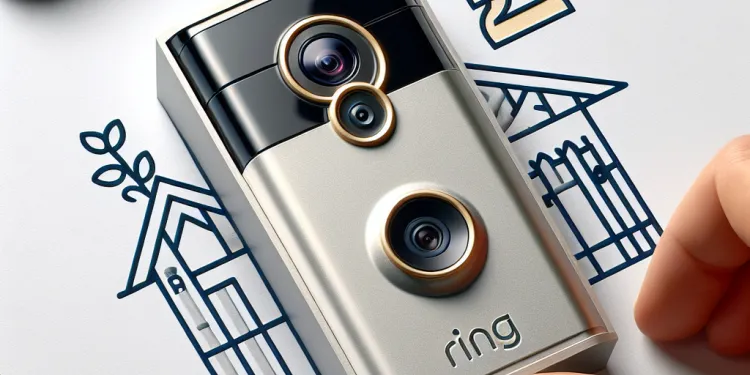
What is a Ring Doorbell Camera?
Relevance: 38%
-

How important is a property survey in preventing boundary disputes?
Relevance: 37%
-
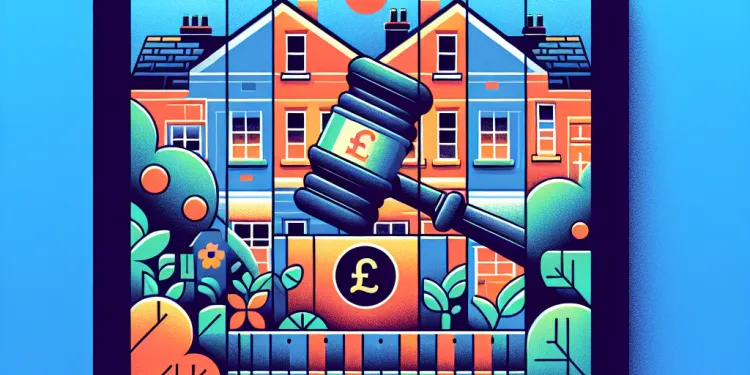
Does the ICO have the power to take action against my neighbour?
Relevance: 37%
-
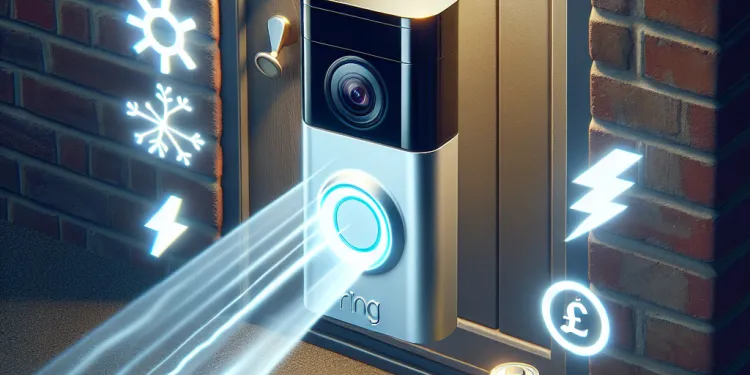
How does a battery-powered Ring Doorbell Camera work?
Relevance: 37%
-
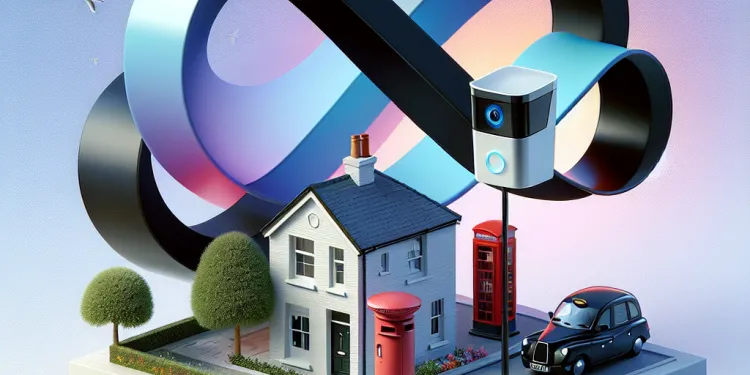
Can a Ring Doorbell Camera record continuously?
Relevance: 37%
-

Is the video quality of a Ring Doorbell Camera good?
Relevance: 36%
-

Can I customize motion detection on my Ring Doorbell Camera?
Relevance: 36%
-
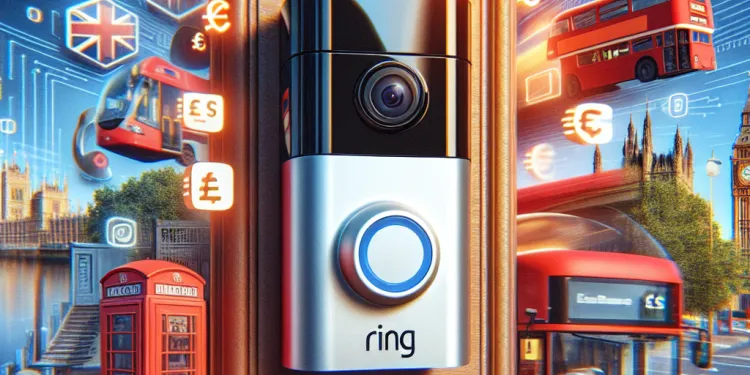
How does a Ring Doorbell Camera work?
Relevance: 36%
Understanding the Issue
In the UK, it's becoming increasingly common for homeowners to install security cameras on their properties. While these devices can provide peace of mind, they can also lead to disputes, particularly if a camera is perceived to infringe on a neighbour’s privacy. If your neighbour has positioned a security camera towards your property, it’s important to understand your rights and the appropriate steps you can take to address the situation.
Privacy and Data Protection Laws
UK residents are protected under the Data Protection Act 2018 and the General Data Protection Regulation (GDPR). These laws apply to cameras that capture images beyond the owner's property boundary, which means that if your neighbour’s camera records footage of your property, it could fall under these regulations. Your neighbour, as the data controller, has certain obligations, such as ensuring that the data is collected fairly and used only for legitimate purposes.
Initial Steps to Resolve the Issue
If you're concerned about your privacy, it's advisable to first approach your neighbour directly. Open a dialogue about the camera’s positioning, and express your concerns in a calm and reasonable manner. This informal approach may lead to a resolution, such as repositioning the camera so that it does not infringe on your property. Often, neighbours may not be aware that their camera is causing discomfort.
Legal Recourse and Mediation
If discussing the matter with your neighbour does not resolve the issue, consider seeking mediation services. Community mediation can provide a neutral environment to discuss the matter collaboratively and find an agreeable solution. Should mediation fail, legal action is a last resort. Involving solicitors or consulting with local authorities about the infringement of your rights may be necessary, especially if privacy laws are being breached.
Considerations for Camera Installations
For those installing cameras, it's crucial to position them to avoid capturing footage of others’ properties without consent. Informing neighbours and putting up signs indicating the use of CCTV can help mitigate privacy concerns. This proactive approach can reduce the likelihood of disputes and comply with legal obligations.
Recap and Conclusion
If your neighbour’s security camera is pointing towards your property, understanding your rights and the laws in place is essential. Starting with an amicable discussion is often the most effective approach. If necessary, consider mediation or legal advice to ensure your privacy is respected. Ensuring that both parties understand their rights and responsibilities can lead to a harmonious resolution.
Understanding the Problem
In the UK, many people are putting security cameras outside their homes. These cameras can make you feel safe, but sometimes they cause problems. For example, if a camera is pointed at your house, it might make you feel like you have no privacy. If your neighbor's camera is looking at your property, you should know what you can do about it.
Privacy and Data Protection
There are rules in the UK to keep your personal information safe. These rules are called the Data Protection Act 2018 and GDPR. They help protect images that cameras take outside the owner’s land. If your neighbor's camera records your house, it must follow these rules. Your neighbor needs to be fair about how they use these images.
First Steps to Fix the Problem
If you are worried about your privacy, talk to your neighbor first. Tell them calmly how you feel about the camera. This can solve the problem, as they might not know the camera bothers you. They might agree to move the camera so it does not look at your house.
Legal Help and Mediation
If talking to your neighbor does not help, you can try mediation. Mediation means getting someone who is not involved to help you both talk and find a solution. If mediation does not work, you might need to think about legal help. This means talking to a lawyer or asking local officials about the laws, especially if your privacy is being ignored.
Tips for Putting Up Cameras
If you are putting up a camera, make sure it does not look at someone else's home without permission. Tell your neighbors about the camera and put up signs to let people know you are using CCTV. This can stop problems from happening and follows the rules.
Summary and Conclusion
If a neighbor’s camera is facing your home, it’s important to know your rights. Start by talking nicely to your neighbor. If that doesn’t work, think about getting mediation or legal advice. Knowing what you can do and talking can help solve the problem peacefully.
Frequently Asked Questions
Can I speak to my neighbor about their camera pointing towards my property?
Yes, it's usually best to start by having a friendly conversation with your neighbor. Express your concerns and attempt to reach a mutual understanding.
What if my neighbor refuses to reposition the camera?
If a conversation doesn't resolve the issue, you might consider seeking mediation or legal advice, especially if you believe your privacy is being invaded.
Are there laws about where a security camera can point?
Laws vary by location, but generally, cameras should not capture private areas where there is an expectation of privacy, such as inside a home or a fenced backyard.
Is my neighbor invading my privacy by having their camera pointed at my property?
It depends on what the camera is capturing. If it's monitoring public areas like the street, it may be allowed. However, if it's capturing private activities, it could be considered an invasion of privacy.
Can I install something to block the camera's view of my property?
Yes, you can install barriers such as tall fences or hedges on your property to obstruct the camera's view.
What are my legal options if my neighbor's camera is invading my privacy?
You can consult with a lawyer to discuss potential actions, which may include sending a cease and desist letter or pursuing a nuisance claim.
Can I contact local authorities about my neighbor's camera?
Yes, you can reach out to local authorities for guidance on privacy laws and regulations in your area.
What is considered a reasonable use of a security camera?
A reasonable use would generally include monitoring one's own property for security purposes without intruding on the privacy of neighbors.
Can my neighbor legally record video or audio on my property without my consent?
Laws differ by jurisdiction, but generally, recording conversations or video in places where there is an expectation of privacy without consent could be illegal.
Should I document my interactions with my neighbor about their camera?
Yes, keeping a record of conversations and any agreements or disagreements can be useful if you need to take further action.
What should I do if I feel threatened by my neighbor's security camera?
If you feel threatened, it may be helpful to report your concerns to the authorities and seek legal advice.
Can I ask a lawyer for advice about my neighbor's camera?
Yes, legal counsel can provide you with advice based on your specific situation and local laws.
Are there common resolutions for disputes over security cameras pointed at neighboring properties?
Common resolutions may include repositioning the camera, installing privacy measures, or agreeing on areas that will not be recorded.
What can I do if my neighbor's camera is recording my private outdoor activities?
You might document the issue, talk to your neighbor about repositioning the camera, and consider legal action if necessary.
How can I tell if my neighbor's camera is actually recording my property?
Sometimes, the visible angle or range of motion can indicate what the camera is capturing. You could also ask your neighbor directly.
Can I use counter-surveillance to monitor my neighbor's camera?
Using counter-surveillance measures might infringe upon privacy laws. It's advisable to handle the issue through communication or legal channels.
How do noise complaints differ from camera-related privacy complaints?
Noise complaints typically involve disturbances affecting the quiet enjoyment of property, while camera issues involve privacy intrusions and lawful recording rights.
Can mediation help resolve disputes about security cameras?
Yes, mediation can offer a neutral ground for resolving disputes and finding agreeable solutions without going to court.
What kinds of documentation are useful in a camera-related dispute?
Photos or videos of the camera setup, timestamps of recordings, and records of communications with your neighbor can be useful.
What should I consider if I'm planning to put up my own security camera?
Ensure your camera is positioned to monitor only your property, respects neighbors’ privacy, and complies with local laws.
Can I talk to my neighbor about their camera facing my home?
If your neighbor's camera is looking at your house, you can talk to them.
Here are some tips to help you:
- Be friendly and polite.
- Tell them how you feel.
- Ask them if they can move the camera.
You can also ask someone to help you talk to your neighbor.
First, try talking nicely to your neighbor. Tell them what you are worried about and see if you can both agree on a solution.
What if my neighbor won't move the camera?
If talking doesn't fix the problem, you can get help from a mediator or a lawyer. This is important if you feel like your privacy is not being respected.
Can a security camera be pointed anywhere?
Laws are different in each place. But usually, cameras should not take pictures of private places. These are places where people expect to be private, like inside a house or a backyard with a fence.
Is my neighbor's camera looking at my home?
If your neighbor has a camera and it points at your house, they might see what you are doing. This could be a problem because you have a right to privacy.
Here are some things you can do:
- Talk to your neighbor and ask them why their camera is looking at your home.
- Ask them to move the camera if it makes you feel uncomfortable.
- You can also use a fence or plants to block the camera's view.
- If you still feel worried, talk to someone who knows the law, like a legal advisor.
It depends on what the camera is looking at. If the camera is looking at places everyone can go, like the street, it might be okay. But if the camera is looking at someone doing private things, it might be a problem and not allowed.
Reading tips: To understand better, try reading out loud or asking someone to explain it to you. You can also use an app that reads text to you.
Can I put something in front of the camera so it can't see my home?
If you need help to read, you can try these ideas:
- Use screen readers that read the text out loud.
- Ask someone to help you understand the words.
- Use apps that change text to make it easier to read.
Yes, you can put up tall fences or plant tall bushes in your yard. This will block the camera from seeing your space.
What can I do if my neighbor's camera is watching me?
If your neighbor's camera is pointing at you and you feel uncomfortable, here are some things you can do:
- Talk to your neighbor: Have a friendly chat with your neighbor. Tell them how you feel about the camera.
- Ask for help: You can talk to someone you trust. They can give you advice or even talk to your neighbor with you.
- Check the rules: Find out what the laws say about cameras in your area. You can ask a grown-up to help you with this.
- Ask an expert: If you're still worried, you can talk to a lawyer. A lawyer is someone who knows the law and can help you.
Remember, it's okay to ask for help if you're unsure what to do.
You can talk to a lawyer to see what you can do. They might help you write a letter to make someone stop bothering you, or help you make a complaint about a problem.
Can I talk to local authorities about my neighbor's camera?
If you are worried about your neighbor's camera, you can talk to the local authorities for help. They can tell you what to do and give advice.
Here are some things that might help:
- Write down what you notice about the camera.
- Ask someone you trust to help you talk to the local authorities.
- Use a computer or phone to find the right contact information.
Yes, you can ask local government for help with privacy rules in your area.
What is a fair way to use a security camera?
Security cameras can help keep us safe. Here’s how to use them fairly:
1. Watch your stuff: Use cameras to keep an eye on your home or things.
2. Respect others' space: Don't point cameras at neighbors or places where people expect privacy, like bathrooms.
3. Tell people: Let others know if they are being recorded.
Tools to help: - Use signs to show cameras are in use. - Talk to neighbors about where you’re placing the cameras.
It is okay to use cameras to watch your own home to keep it safe. Just make sure not to spy on your neighbors.
Can my neighbor take videos or recordings on my property without asking me?
It might help to use pictures or videos to understand. Maybe ask someone you trust to explain it with you. If you’re worried, tell an adult or someone who can help you.
Different places have different rules, but usually, recording people talking or taking videos in private places without asking first might be against the law.
Should I write down what I talk about with my neighbor's camera?
It is a good idea to write down what you and your neighbor say. This can help you remember. You can look back at what happened. It is good for solving problems.
Here are some tips to help you:
- Write down the date and time.
- Write down what you both said.
- Use a notebook or make notes on your phone.
- You can also ask someone you trust for help.
Yes, it's helpful to write down what people say and any deals or arguments you have. This can help if you need to do something about it later.
What can I do if my neighbor's camera scares me?
If your neighbor's camera makes you feel scared, here are some steps you can take:
- Talk to your neighbor. Tell them how you feel. They might not know the camera bothers you.
- Ask a friend or family member to help you talk to your neighbor.
- Check if the camera is allowed. Find out if it breaks any rules in your area.
- If you still feel scared, ask someone like a community officer for help.
- You can write down your feelings in a notebook. It helps to remember what happened.
If you feel scared or in danger, it is important to tell someone who can help, like the police. You can also talk to a lawyer to get advice.
Can I talk to a lawyer about my neighbor's camera?
You can talk to a lawyer if you have questions about your neighbor's camera. A lawyer can help you understand what is okay and what is not.
Here are some tips:
- Write down your questions before you talk to the lawyer.
- Bring someone with you who can help you understand.
- You can use a voice recorder to remember what the lawyer says.
- Ask the lawyer to use simple words if you do not understand.
Yes, a lawyer can help you. They give advice that is just right for you and your local laws.
How can people fix problems with security cameras pointing at their neighbor's house?
There are some simple ways to solve the problem.
You can move the camera to a better spot. You can set up things to keep your privacy safe. You can also agree on which places should not be filmed.
What can I do if my neighbor's camera is watching me outside in my garden?
If your neighbor's camera is looking at you, here are some things you can try:
- Talk to your neighbor: You can politely ask your neighbor to move the camera.
- Use privacy screens: Put up a fence or plants to block the camera view.
- Get help: Ask a grown-up you trust or local community services for advice.
- Write down what happens: Keep notes on dates and times you feel watched.
- Ask for legal advice if needed: If you feel uncomfortable, you can ask someone who knows the law for help.
Remember, you have the right to feel safe and comfortable in your own home.
You can write down what is wrong, ask your neighbor to move the camera, and think about going to court if you need to.
How do I know if my neighbor's camera is looking at my home?
Cameras can be tricky. Here are some tips:
- Look at where the camera is pointing. Is it aiming at your house?
- Ask your neighbor if the camera records your home. They might tell you.
- At night, check for little red or green lights on the camera. This can show it is recording.
If you are worried, you can talk to someone who can help, like a trusted friend or family member.
Sometimes you can tell what the camera sees by looking at where it points or how it moves. You can also ask your neighbor about it.
Can I watch my neighbor's camera with special tools?
You might want to know what your neighbor's camera can see. But using special tools to watch it might not be okay. These tools are called counter-surveillance tools.
Before you use any tools, it's important to:
- Talk to a grown-up you trust. They can give advice.
- Understand the rules about privacy in your area.
- Maybe ask your neighbor what their camera sees.
Remember, respecting others' privacy is important!
Using special tools to watch out for spying might break privacy rules. It's better to talk about the problem or ask for help from the law.
What is the difference between noise complaints and camera privacy complaints?
A noise complaint is when you tell someone about sounds that are too loud and bother you.
A camera privacy complaint is when you tell someone that a camera is watching you and you don't like it.
You can use tools like earplugs to help with noise. For camera concerns, talk to someone who can help with privacy.
Noise complaints are when loud sounds bother people and make it hard for them to enjoy their homes. Camera issues are when cameras make people feel like their privacy is being invaded and also involve rules about what you can and can’t record.
Can talking with a helper fix fights about security cameras?
It can be hard to agree about where to put security cameras. A helper can listen to both sides. They help find a fair answer for everyone. This is called mediation.
If you are having trouble talking to the other person, here are some tips:
- Find a quiet place to talk.
- Take turns speaking and listening.
- Use simple words to say what you feel.
- Ask a helper to guide the talk. This could be a grown-up you trust.
Talking with a helper can make it easier to solve problems. They help everyone stay calm and make fair choices.
Yes, mediation can be a peaceful place where people work out their problems and find solutions without going to court.
What papers can help if you have a problem with a camera?
Take pictures or videos of the camera. Write down when you made the recordings. Keep notes of any talks you have with your neighbor. These things can help you.
Things to Think About When Putting Up a Security Camera
If you want to put up a security camera, think about these things:
- Where to Put It: Choose a good spot to see important areas like doors and windows.
- Camera Type: Decide if you want a camera that works inside or outside.
- Day and Night: Make sure the camera can see well in the dark.
- Privacy: Don't point the camera where it can see into other people's homes.
- Easy to Use: Use apps or tools that help you watch what the camera sees easily.
- Ask for Help: If you're unsure, ask someone or use online videos to guide you.
Make sure your camera only looks at your own property. Be careful not to point it at your neighbors' homes. Follow local rules about using cameras.
Useful Links
This website offers general information and is not a substitute for professional advice.
Always seek guidance from qualified professionals.
If you have any medical concerns or need urgent help, contact a healthcare professional or emergency services immediately.
- Ergsy carfully checks the information in the videos we provide here.
- Videos shown by Youtube after a video has completed, have NOT been reviewed by ERGSY.
- To view, click the arrow in centre of video.
- Most of the videos you find here will have subtitles and/or closed captions available.
- You may need to turn these on, and choose your preferred language.
- Go to the video you'd like to watch.
- If closed captions (CC) are available, settings will be visible on the bottom right of the video player.
- To turn on Captions, click settings .
- To turn off Captions, click settings again.
More Items From Ergsy search
-

Is it legal for my neighbor to have a security camera facing my property?
Relevance: 100%
-

Can my neighbour legally point a security camera at my property?
Relevance: 100%
-

What if my neighbor claims the camera is for security but it points towards my property?
Relevance: 97%
-

How can I stop my neighbour's security camera pointing at my property?
Relevance: 97%
-

What should I do first if my neighbor's security camera is pointed at my property?
Relevance: 93%
-

Can I ask my neighbour to reposition their security camera?
Relevance: 92%
-

What can I do about my neighbour's security camera?
Relevance: 92%
-

Is it legal for me to block the view of my neighbour's security camera?
Relevance: 91%
-

What can I do about my neighbour's security camera?
Relevance: 91%
-

Do neighbours need to inform me if their cameras record my property?
Relevance: 87%
-

What steps can I take if my neighbour refuses to reposition their security camera?
Relevance: 82%
-

How can I tell if a security camera is pointing at my property?
Relevance: 81%
-

Can my neighbour use footage from their security camera as evidence in disputes?
Relevance: 76%
-

Are there privacy laws that protect me from neighbor's cameras?
Relevance: 72%
-

Can I block the view of my neighbor's camera with physical barriers?
Relevance: 71%
-

Can I ask for legal help to get my neighbor’s camera moved?
Relevance: 68%
-

Should I contact the authorities if my neighbor refuses to adjust their camera?
Relevance: 68%
-

How can I disable my neighbour's security camera?
Relevance: 66%
-

Is redirecting a security camera a solution?
Relevance: 64%
-

Is my concern valid if the camera is only monitoring my driveway?
Relevance: 60%
-

What happens if a neighbor builds a fence on my property?
Relevance: 56%
-

What should I do if I feel my privacy is being invaded by my neighbour's CCTV?
Relevance: 54%
-

Can I install my own camera to monitor the area in question?
Relevance: 53%
-

How secure is the Ring Doorbell Camera system?
Relevance: 53%
-

Is it advisable to discuss camera placement before it becomes an issue?
Relevance: 47%
-

What laws apply to the use of security cameras in the UK?
Relevance: 45%
-

Are there any mediation services for resolving disputes over security cameras?
Relevance: 44%
-

Can the police access my neighbour’s CCTV footage without consent?
Relevance: 42%
-

What happens if my Ring Doorbell Camera is stolen?
Relevance: 41%
-

How do Ring Doorbell Cameras work?
Relevance: 40%
-

Can I request footage of myself from my neighbour's CCTV?
Relevance: 40%
-

What is my neighbour required to do under GDPR?
Relevance: 38%
-

What is a Ring Doorbell Camera?
Relevance: 38%
-

How important is a property survey in preventing boundary disputes?
Relevance: 37%
-

Does the ICO have the power to take action against my neighbour?
Relevance: 37%
-

How does a battery-powered Ring Doorbell Camera work?
Relevance: 37%
-

Can a Ring Doorbell Camera record continuously?
Relevance: 37%
-

Is the video quality of a Ring Doorbell Camera good?
Relevance: 36%
-

Can I customize motion detection on my Ring Doorbell Camera?
Relevance: 36%
-

How does a Ring Doorbell Camera work?
Relevance: 36%


